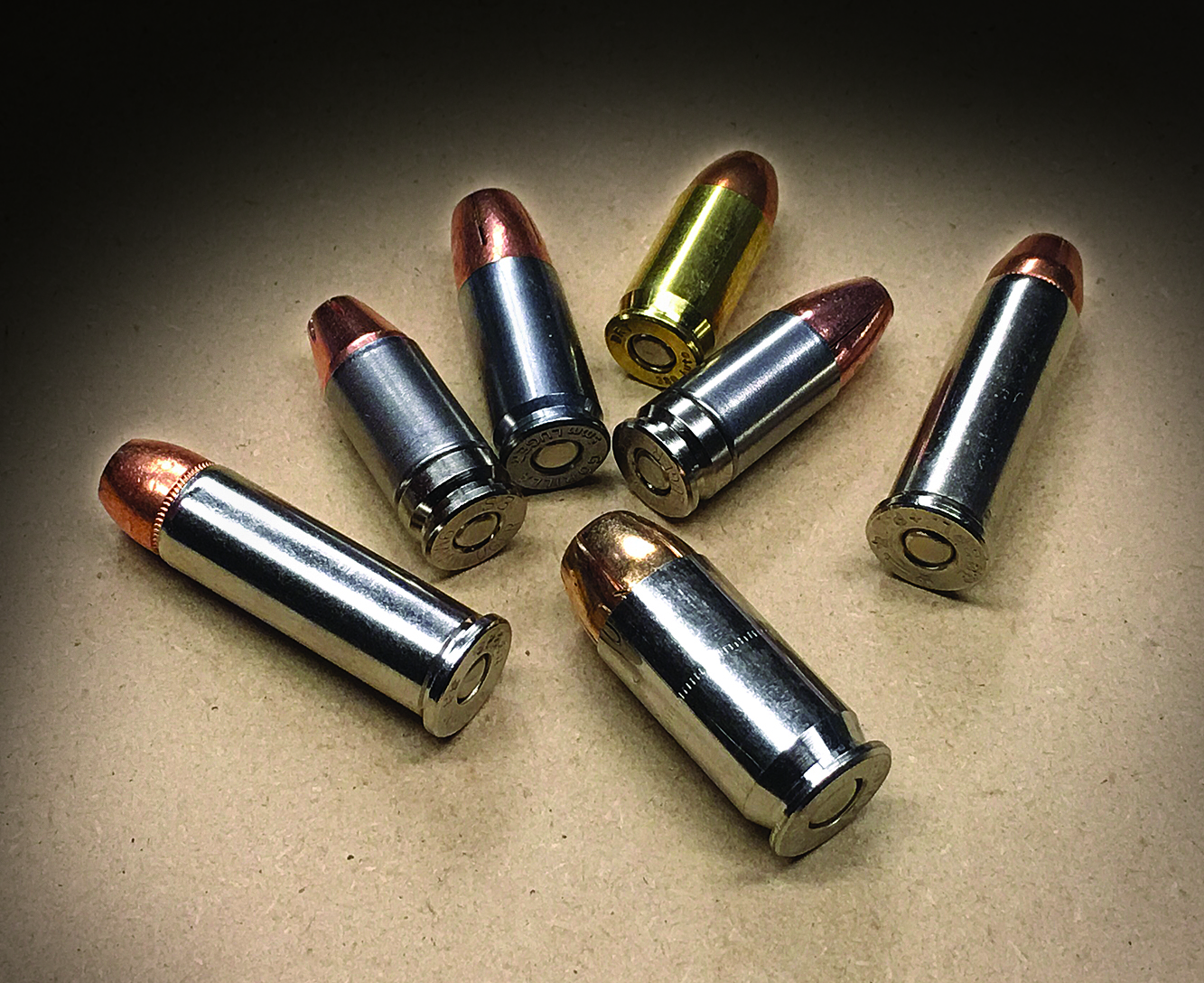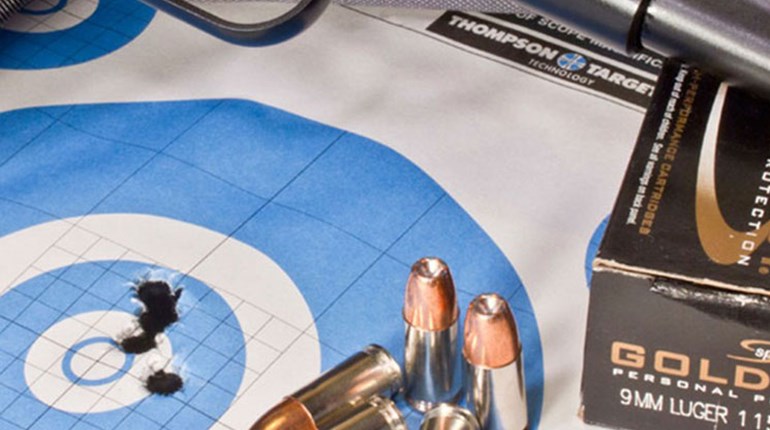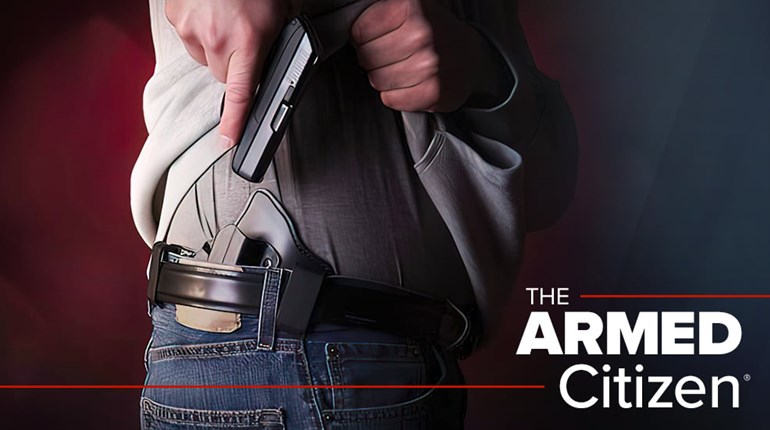
We hope it’s clear that shooting for defensive purposes is an undesirable necessity. We profoundly hope that it is rare, trending toward (eventually) unneeded.
But the ugly truth is that every time and society has experienced an irreducible minimum number of people who don’t or won’t share such hopes. These malignant few are quite content to take what they want by any means or mechanism at hand, including shocking violence.
… there’s good sense in asking what problems are solved by the current rash of up-pressured, “+P” fodder for carry/defensive use.Nothing stymies such aggression like a modern firearm and ammunition. At present—particularly in the ammunition part of the equation—it strikes us that our industry is in a “power” phase: There are many fine, eminently concealable pistols out there (here, here and here, for instance), and an increasingly capable selection of ammunition for them. As our hijack from Hamlet suggests, there’s good sense in asking what problems are solved by the current rash of up-pressured “+P” fodder for carry/defensive use.
We grant that proper power is essential to a given task: Robert Ruark’s notion of “enough gun” has applicability well beyond Africa and dangerous game. Where we get our knickers in a twist is when ammunition power and bullet architecture supplant shooting craft. That’s a formula for all types of trouble—up to and including a defensive firearm that won’t answer the call when needed.

So before you slap the latest wunderpatrone in your defensive handgun (or long gun, for that matter), it pays to know what you’re getting into.
What is +P? “+P” is a designation that applies to a cartridge with a powder/bullet combination that exceeds SAAMI pressure specifications for a given caliber by 10 percent. The resulting loads produce higher velocities, and therefore more downrange energy. “+P+” loadings go further, and SAAMI does not have published standards for these. (That’s a hint, by the way.)
What does a +P cartridge get me? As pressure increases, downrange velocity and power increase according to E=mv2 (energy=mass of the bullet times velocity squared). The simple version is that delivered energy goes up faster by increasing velocity than by increasing projectile mass. Under normal circumstances, the theory is that the probability of a single shot ending the fight goes up as well.
Wouldn’t I always want more energy? This is where the carry practitioner gets back to very serious ground, and the answer is a decisive though inconvenient “maybe.”
As a matter of actual performance, however, seemingly small variations in the components of such ammo mean that “felt” recoil can vary …Mainly this is due to what else goes on when you introduce +P pressures/velocities and their related effects. The difference between two premier 9 mm defensive loads we tested (one “normal” and one “+P”) resulted in a 13.67-percent energy increase with the latter. In accordance with Newton’s Third Law, you’ll own that as recoil, and for most folks, this is manageable, if not exactly enjoyable. Note that report and muzzle flash will almost certainly rise, too.
But “what else” isn’t done with us yet. Right next to those $20 to $40 per 20-round boxes of defensive ammo of either P or +P power, you’ll find target or range ammo at $12 to $15 per 50. For altogether obvious reasons, it’s those that will comprise the majority of training ammo. These are generally supposed to be right at SAAMI standards, mainly because that is what is likely to run the largest range of available pistols.
As a matter of actual performance, however, seemingly small variations in the components of such ammo mean that “felt” recoil can vary, often a great deal more than the 13 or so percent of carefully confected defensive ammo. A major brand, 115-grain load that we ran alongside our defensive pairing is a case in point: It was 28 percent less powerful than our +P, and a second variety 34 percent, yet both ran our test pistols just fine, except the latter wouldn’t lock the slide back.
No imagination is required to see that performance differences on this scale will be a technique challenge for many shooters, and perhaps at the worst possible time.
This is also why so many experts have long said that you should train with the same ammo you carry, whether “P,” “+P” or whatever. Their logic is sound: These crucial “feel” differences never appear, and won’t muddy performance when it matters. Philosophically, we agree; as a practical matter, though, this only happens when somebody else is paying the ammunition bill. And as we said here, it’s just one more reason to reload: Chronograph your defensive ammo, and fab your own training ammunition, though these from Federal are a quality fallback in .45 ACP, .40 S&W, 9 mm and .380 ACP.

Another caution enters into choosing whether +P ammunition belongs in your kit: The labeling “rules” are strikingly different by caliber. You will find that many calibers don’t reflect +P load status on the cartridge at all, while others are scrupulous, and still others a mixed bag. Firearms are much the same. The short explanation is simple: Most 9mm pistols, for instance, will easily handle the added pressure (though be cautious with very small samples), while many older .38 SPL revolvers will not—with alarming results. Always, always, always consult your manual or manufacturer to be sure.
That doesn’t mean I wouldn’t use +P; it does mean I’d pay careful attention to the condition and performance of that firearm, and especially if I noticed any change …We took a final question on the +P conundrum to an inside-the-gun sort of expert—longtime gunsmith and renowned custom builder Gary Kimball. His perspective was typically succinct.
“You can expect +P ammunition to run safely in modern pistols from almost any first-rank manufacturer. Remember, these are far below the ‘proof’ loads that everything is tested with nowadays,” Kimball said. “But even though a steady diet will run, that doesn’t necessarily make it a good or bad idea, since that’s also why we have different calibers—to meet different needs. If you’re slowly shooting that particular gun loose to the point of failure or malfunction, the worst possible time to discover it would be in a defensive shooting situation. It’s a potential downside of the accelerated wear-and-tear that is inevitable in guns that see a lot of +P.
“That doesn’t mean I wouldn’t use +P; it does mean I’d pay careful attention to the condition and performance of that firearm, and especially if I noticed any change, however small,” he added. “I’d also never suggest that anybody compromise their ability to run their gun with precision for a few percentage points improvement in power.”
This is where the loop closes, we’d argue: There are certainly applications for +P, but choose between the, er, pluses and minuses wisely. And no matter what you decide, practice, practice, practice.
Now Carry on.

































